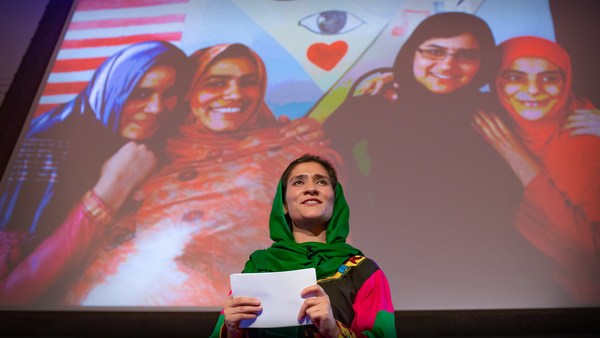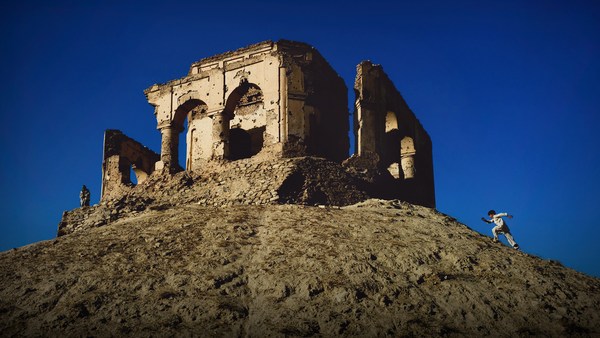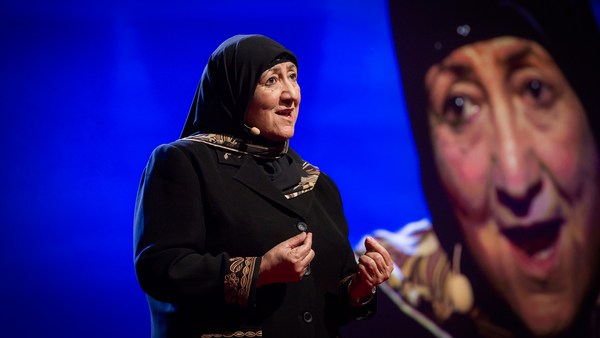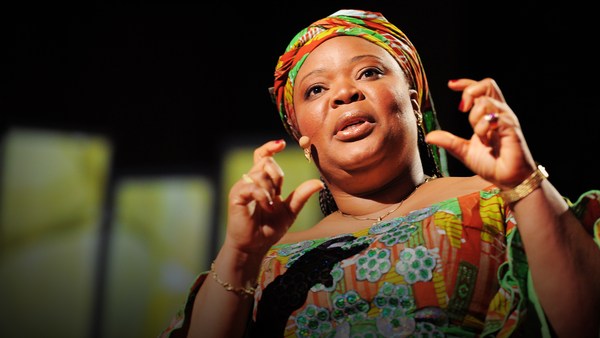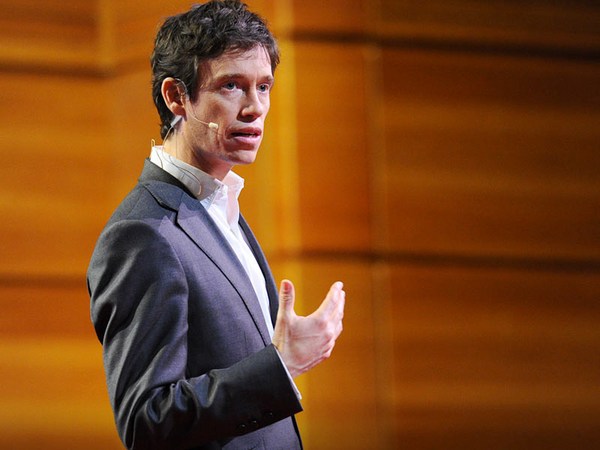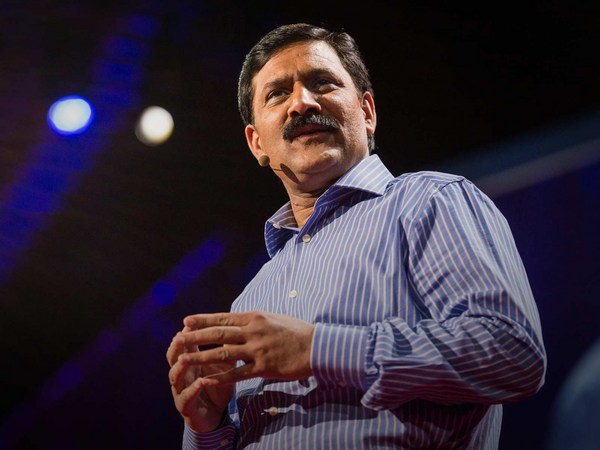Nine years ago, I stood on a stage a lot like this one. It was at the TEDWomen conference in Washington, DC, back in 2012. I was 22 years old, a woman with a college degree. That's nothing too exceptional to say here in the United States. In Afghanistan, my homeland, women like me were the exception.
It had been a little over a decade since the fall of the Taliban regime. A time when it was quite literally illegal for girls to go to school. The Afghan people had spent a decade rebuilding our nation and our lives. And when I stood on the TEDWomen stage, I challenged the world to dare to educate Afghan girls. The way I had just started doing at a place in Kabul called the School of Leadership, Afghanistan, or SOLA.
(Video) [To] me, Afghanistan is a country of hope and boundless possibilities. And every single day, the girls of SOLA remind me of that. Like me, they are dreaming big.
That was then.
(Applause)
And this is now. And the Taliban are back.
But I want you to know I haven't stopped dreaming. Neither have those girls of SOLA. We have taken our dreams and adapted them. Agility, adaptation, resilience. These concepts are core to everything that SOLA is. We have faced the uncertainty of what might be, and we have turned it into the certainty of what will be. I'll explain.
Back in 2012, we ran a program where girls lived at SOLA but primarily studied at high schools in Kabul. And we secured scholarships for these girls to pursue their education overseas, including here in America. It worked. It worked well. But I realized I was contributing to something I never wanted to see: a brain drain of Afghanistan’s educated women. So I realized I had to adapt. I wanted to educate Afghan girls who would become educated Afghan women, who would then educate other girls. And all of them together over time would build a new Afghanistan from the bottom up, and they would be among its leaders. I needed a place where these girls would learn to read English and Koran. I needed a place where the administration and instructors would be women. A place where the notion of female leadership -- Afghan female leadership -- would become known for every student. I needed a place that quite simply did not exist in Afghanistan.
So my team and I created it. In 2016, SOLA became a full-fledged boarding school for girls. The first and only in Afghanistan.
(Applause)
That year, we enrolled 24 girls in sixth grade. By 2021, we had enrolled nearly 100 girls in grades six to 11. I'll tell you something I'm very proud of. In 2016, we drew girls from 14 of Afghanistan's 34 provinces. This year, we have girls from 28 provinces.
(Applause)
Imagine you are a girl from one of these provinces coming to SOLA. You've probably never lived away from your family. As you can see, we have obscured their faces for their safety. But when you arrive on campus, an older sister will be there for you. She will be beside you as you pray in the campus mosque; she will eat with you; she will help you with your schoolwork. You are from different provinces, different ethnicities, but you are united by sisterhood. By your identity as Afghan girls.
Educating girls, breaking barriers, this is what we do at SOLA. We became known for this nationwide. Parents came to us from across Afghanistan asking us to admit their daughters.
I remember one father in particular, from a rural province, and one of his daughters was already a student with us. This was back in 2019, and I remember him coming to campus and sitting in my office. He was trying to convince me to admit another one of his daughters. On his way out, he stopped in the doorway, turned around and looked at me, and completely calmly, he said, "When the Taliban come back, please promise that you will burn my daughter's records. If the Taliban know my daughter studies here, they will kill my family." Remember, this was 2019. Two years ago. He didn't say "if the Taliban come back." He said "when." I promised him that I would do what he asked. And this summer ... I did.
What you're seeing here are the records of my students burning. We set this fire to protect every girl who's ever studied at SOLA. This was mid-August. Right as the Taliban were about to enter Kabul. Less than two weeks later, nearly 250 members of the SOLA community, students, staff and family members, were out of Afghanistan and safe in the nation of Rwanda.
(Applause)
I will say this again. When you face the uncertainty of what might be, you can turn it into the certainty of what will be.
SOLA's departure from Afghanistan made headlines. And I think it has drawn the attention partly because how swiftly the Taliban took over Afghanistan and how quickly so much of what was beautiful about my country turned to dust. But what these stories don't usually tell you is that we had been quietly planning for this day of our departure for most of the year. I had that conversation with my student's father in December 2019. The United States signed an agreement with the Taliban in February 2020. And the US announced its unconditional withdrawal from Afghanistan in April 2021. These dates were like signposts on a road I never wanted to be on. I couldn't see far enough down that road to be certain about it's end. But what I was certain of was that I would not sit passively by and let that road lead me.
This spring, we started making plans to bring our students overseas for a study abroad program. This takes time. We needed to identify potential host nations; we needed parents to grant permission; we needed to speak with officials and gather our resources. It takes time, and all the while you're moving down that road, going faster, gaining momentum toward what lies at the end. There is a lot about this that I still cannot talk about. Some of it is for security reasons. And some of it is for personal reasons. This is still very raw for me.
I never imagined Afghanistan would fall as fast as it did. No one imagined it. But I will tell you this. On August 1, we were bringing our students back to Kabul after their semester break. On August 15, the Taliban were in Kabul and in control. And on August 30, we were holding our second day of classes at our new campus in Rwanda with our entire community together and safe.
(Applause)
That is how fast things can move. And that's what anyone, not just me, but anyone can accomplish when you accept the uncertainty of what might be, and through careful contingency planning, turn it into the certainty of what will be. You will find yourself somewhere new. And different. Adapting and succeeding. And sometimes, you will know you have left a light on to help you find your way home.
What you're seeing here is something that I very rarely show publicly. Earlier, I talked about SOLA's campus in Kabul. That campus is a series of rented buildings that we have converted into classroom and residential space. But what you're seeing here is something very different. This is a perimeter wall that rings a parcel of land in the heart of Kabul city, land that SOLA holds legal rights to. This is the land where we're going to build a permanent campus, where Afghan girls will come to live and study in safety. We cleared this land ourselves, all 18,000 cubic meters of landfill. We raised this wall ourselves. We knew we would face opposition, and we planned for it. We spoke with our neighbors, explaining how valuable an educated girl is to her family, explaining how one day their daughters could apply to study at SOLA. And our neighbors became some of our strongest allies. We spoke with high-level government officials who complained that this land was too valuable to be wasted on educating girls. And we convinced them otherwise. Those officials, of course, aren't in government anymore. Afghanistan has new leaders. And while this is a sensitive topic, I can say that it's quite possible that construction on this new campus might resume relatively soon. Time will tell.
Nine years ago, I stood on a TEDWomen stage, and I said Afghanistan is a country of hope and boundless possibilities. And every single day, the girls of SOLA remind me of that. Like me, they are dreaming big.
Earlier this year, I was on SOLA's campus in Kabul interviewing a girl who was applying for sixth grade. I asked her why she wanted to come to SOLA, which is a question I ask all our applicants. She said, "I have dreamed of this. I've dreamed of coming to SOLA ever since I was a little girl." In all these years that I have interviewed girls from across Afghanistan, this was the first time that a young girl said that to me. Why do I keep doing what I do, despite the risk that comes with it and all the uncertainty? Because Afghanistan is a country of hope and dreams. It's my home. And it always will be. And now, out there in the most remote corners of Afghanistan, are young girls, dreaming to attend SOLA.
My community, my students are settling and thriving in Rwanda. And I'm so grateful we're there. I see Afghanistan now through TV news reports or on my phone, when friends, still in Afghanistan, call me. But SOLA is there too. We have planted roots that can never be destroyed.
Nine years ago, I challenged the world to dare to educate Afghan girls. Those girls are young women now. And they will do what Afghan women have always done. Meet uncertainty head on and rise above it. I know they will do their part. But they, we need something from you, all of you here and watching this.
So today I issue another challenge to the world. Do not look away. As the noise dies down, and Afghanistan slips from the front pages, do not look away.
In nine years, it will be the year 2030. It's the year I will celebrate my 40th birthday. So here is my dream, my birthday wish. In nine years, I hope to be speaking with you again from SOLA’s campus in Kabul, with all of my students there. I will see you then, if you do not look away.
Thank you.
(Applause)
